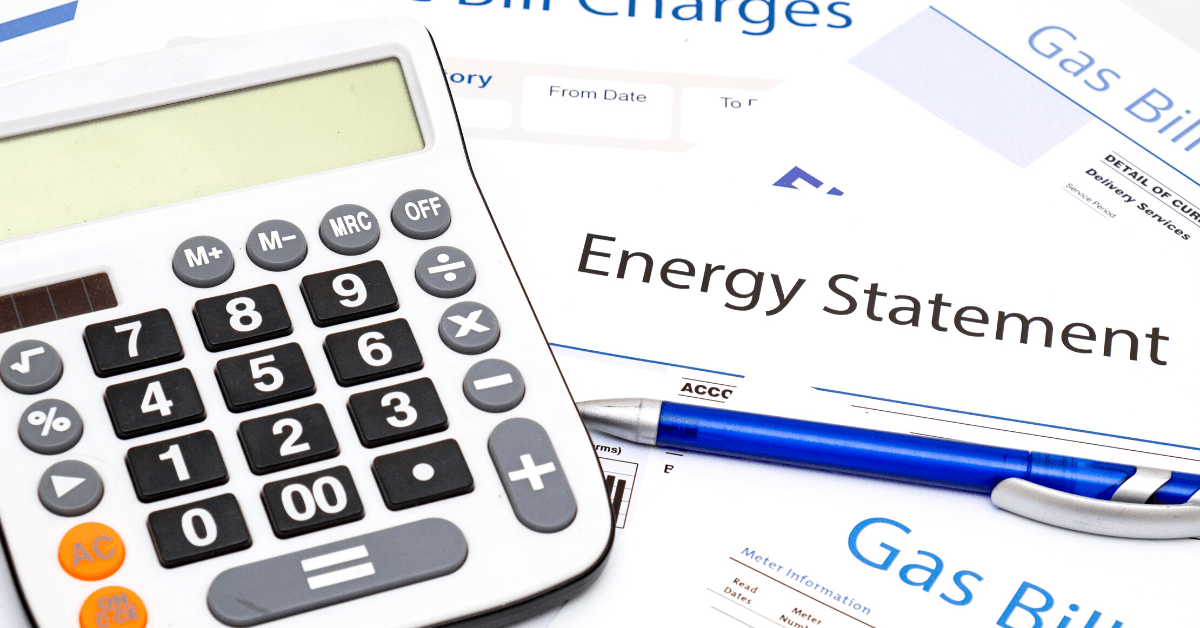The Difference Between Domestic and Business Energy Bills
Energy suppliers provide electricity and gas to both domestic and business consumers, but what are the differences between the two when it comes to energy billing? We take a look.
Are business energy bills cheaper than domestic energy bills?
When evaluating average unit rates, it’s clear that businesses pay a lower price. This is often based on the business’ size and its energy usage, as larger commercial consumers will typically pay a lower unit rate.
The unit rate on a business energy bill may be cheaper, but there are other factors to consider such as VAT.
Domestic energy tariff consumers pay just 5% VAT for their energy, whilst businesses will normally pay 20%.
Businesses must also consider that they have to pay for the Climate Change Levy (CCL) and other government and industry schemes.
For example, the main rates of the CCL apply only to businesses operating in the following sectors:
- Industrial
- Commercial
- Agricultural
- Public Services
Businesses that only use a small amount of energy don’t have to pay the main rate of CCL and can pay a reduced rate by entering into a climate change agreement with the Environment Agency. You also don’t have to pay CCL and only pay 5% VAT if you have a residential element to your business e.g. if you run a B&B, a campsite, or a care home.
Are businesses protected when purchasing business energy?
When supplying domestic consumers, energy suppliers are bound by several industry codes including the energy supply licence conditions. These regulate all customer interactions and how suppliers can operate within their gas or electricity supply licence.
As with domestic supply, these rules are enforced by regulators such as Ofgem who ensure that businesses are treated fairly by energy suppliers.
What makes up a business energy bill?
The energy bill for a business is typically comprised of three areas. These are:
- Commodity (wholesale) costs
- Government policy costs
- Systems and transmissions costs (from the energy supplier or the National Grid)
Wholesale costs have been at record lows in recent months and consequently, energy bills have been cheaper for many. However, with the easing of the Covid-19 lockdown demand for energy is back on the rise and wholesale prices are showing signs of rising too.
Government policy costs now make up a bigger chunk of an energy bill than ever before as the government seeks ways to pay for costly environmental schemes and initiatives. Energy suppliers add these costs to their consumers' energy bills. Currently, businesses are charged on five key policy areas these are:
- The CCL
- Renewables Obligation Certificates (ROCs) – a scheme designed to support the development of large-scale electricity generation.
- Feed-in Tariff scheme - designed to encourage the uptake of renewable and low-carbon electricity generation technologies such as solar panels.
- Contracts for Difference (CfDs) – The CfD scheme is the main mechanism used by the government for supporting low-carbon electricity generation. The scheme is designed to act as an incentive and encourage investment in renewable energy.
- Capacity Market - The Capacity Market ensures the security of electricity supply by providing a payment for reliable sources of capacity.
Transmission costs are often added to the wholesale cost on an energy bill, but some energy suppliers allow the option for customers to have them shown separately. These charges are for the maintenance and use of transmission and distribution systems.
The differences between business and domestic energy suppliers
There are several big differences between business and domestic energy suppliers, these include:
Longer Contracts
Business energy supply contracts are often longer (typically 5 years), as they allow suppliers to buy energy in bulk. This enables them to pass on cheaper costs to their business customers. The biggest downside is that a business customer cannot end the contract early without difficulty. Often there is a long cancellation period which is normally 6 months before the contract ends.
In contrast, a domestic consumer is typically contracted for 12 months. Domestic consumers can cancel their energy supply contract within the initial 3 month period. This allows them a lot more flexibility when finding the best energy price deals.
Dual Fuel
Businesses don’t get the option for dual fuel tariffs from energy suppliers. Instead, they need separate electricity and gas contracts. Domestic consumers, on the other hand, have much more flexibility and choice when it comes to energy tariffs.
No ‘off-the-shelf’ tariffs
Each business has different energy requirements. As a result, energy suppliers don’t provide them with the same variety of tariffs as they do domestic consumers. Instead, a business is often offered a bespoke quote.
Energy billing services via Dyball’s CRM system
Our energy supplier CRM incorporates an energy billing system which allows the scheduling and creation of ad-hoc bill production to a bespoke billing template.
The gas and electricity billing software we provide effortlessly integrates with our chosen ledger and direct debit partners. Dyball’s CRM utility billing solution enhances customer services by allowing consumers to view and manage their account using a bespoke customer portal integration.
Our energy billing solutions also reduce costs by delivering accurate bills and enabling the automation of billing and collection processes. This is achieved through a range of high quality features, including bill management services, energy tariffs set-up and more.
For more information, get in contact with us today.
Further Reading
Ofgem’s Energy Supplier Licensing Review: what’s being planned part 1
Ofgem’s Energy Supplier Licensing Review: what’s being planned part 2
Ofgem’s Energy Supplier Licensing Review: what’s being planned part 3
Dyball Associates are proud to help new supply businesses successfully launch in the UK market. Through our energy market consultancy services and energy billing software, we’re supporting new UK electricity and gas suppliers to enter the energy market.





